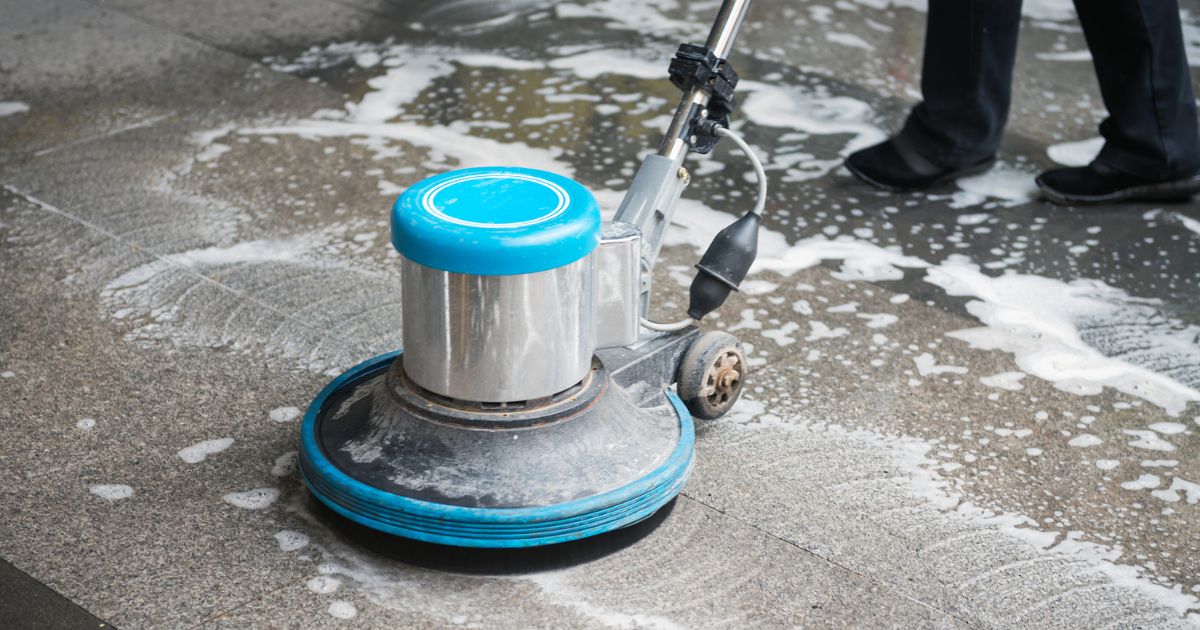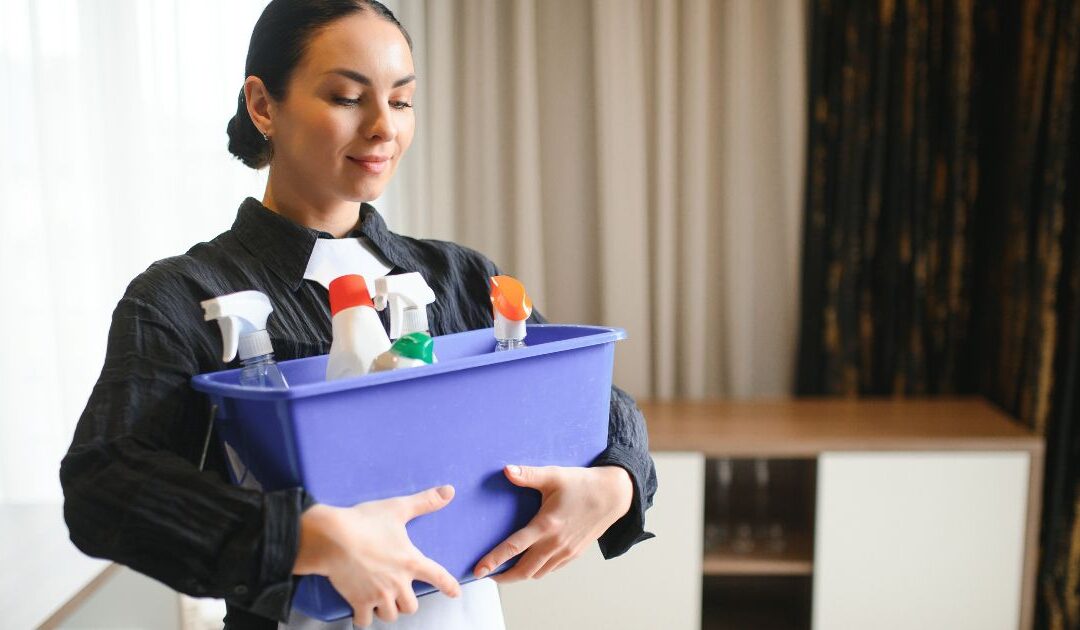What Is the MilliCare Franchise Opportunity?
Company Overview and Industry
MilliCare Floor & Textile Care is a commercial floor and textile maintenance franchise focused on services like carpet and upholstery cleaning, hard-surface care, tile and grout, fiber protection, odor solutions, and entry matting for business facilities. The brand traces its roots to Milliken & Company and has operated as a franchise network in the U.S. market for decades. It positions itself as a B2B provider with a national footprint of 50–60+ locations in the U.S., with additional international territories.
Recent third-party summaries and the brand’s own materials suggest the system operates only franchised units (no corporate locations) and has expanded modestly in recent years. Reported unit counts in public sources range from the low-50s to high-50s, reflecting net growth from 2021–2023.
What Franchisees Get
MilliCare’s services target Class-A offices and other commercial facilities, emphasizing preventive maintenance programs designed to extend the life of flooring and textiles. Franchisees are equipped with brand methods, formal training, and ongoing support. The customer base is predominantly commercial (not residential), which can translate to larger tickets, professional procurement processes, and repeat service schedules.
MilliCare also markets the advantage of national accounts and a recognized name within commercial flooring care—points the company says help franchisees win enterprise clients and keep retention high.
Startup Costs and Ongoing Fees
Initial investment. According to Franchise Chatter’s review of MilliCare’s 2024 FDD (Item 7), the estimated initial investment ranges from $170,000 to $195,500. Older publications and brand pages list different ranges (as low as $128,800–$155,500 for the 2023 FDD; some aggregators list $198,500–$253,000), so make sure you’re looking at the current FDD for exact figures according to Franchise Chatter.
Fees. Per Items 5–6 in the 2024 FDD, the initial franchise fee is $49,000. Royalties are 6% of Gross Receipts, discounted to 5% for the first 24 months with minimum monthly royalties that phase in. Brand fund (promotional fund) contributions are 1% for the first 24 months, then 2% thereafter.
Other notes. Some public profiles and brand pages highlight “low startup” positions and retention claims; always reconcile marketing statements with the FDD and speak with current franchisees during validation.
How the Industry Itself Compares
MilliCare’s Industry Advantages
Commercial focus and enterprise buyers. MilliCare operates in commercial floor/textile care, which involves working with facility managers who value longevity of surfaces and life-cycle cost reductions. That can mean repeat programs tied to budgets rather than impulse purchases—attractive for B2B stability.
Defined technical niche. Unlike broad janitorial scopes, MilliCare emphasizes specialized processes and protective treatments. This specialization can differentiate vendors in RFPs and command professional pricing when outcomes are measurable (appearance, air quality, floor longevity).
Brand-level support and accounts. The company and some broker write-ups point to national accounts and system-level support intended to help franchisees land multi-location clients. For a new owner, that can jump-start revenue quicker than purely local hunting. Validate this by asking how leads are allocated, what close rates look like, and what margins national deals yield.
Documented performance data. MilliCare includes an Item 19 Financial Performance Representation. For 2023, Franchise Chatter reports the average sales across all territories included were $555,782, with single-territory franchisees averaging $350,004 and multi-territory operators averaging $1,749,567 (highs and lows vary widely). For 2022, the all-territory average reported was $489,971, with quartiles ranging from the mid-$100Ks to $1M+ in sales. Note: these are gross sales, not profit, and your results may vary.
Compared to the Commercial Cleaning Industry
Size and resilience. The U.S. commercial cleaning market exceeds $100B and is essential and recession-resistant because organizations must maintain hygienic, compliant workplaces. Demand spans offices, schools, medical, industrial, and logistics—diversifying risk. Contracts are needed across cycles, including downturns. (Industry size and “essential” nature are well-established sector realities; confirm current figures during diligence.)
Recurring revenue as the core model. Commercial cleaning typically runs on multi-month or multi-year contracts with predictable, recurring invoicing—ideal for building a stable, scalable P&L.
Low fixed overhead to scale. Unlike equipment-heavy or site-dependent concepts, B2B cleaning can scale with modest CapEx: labor, supplies, vehicles, scheduling software, QA tools, and training systems. You don’t usually need retail build-outs or expensive real estate.
Simple to operate executive-style. Cleaning can be structured for semi-absentee ownership once your hiring, scheduling, and QA are systematized. For first-time entrepreneurs, the learning curve is often more about people and process than complex technical skills.
Potential drawbacks in the MilliCare niche. Specialized floor care can be project-heavy in some markets and concentrated in specific floor types and decision cycles. That may produce lumpier cash flow compared to daily/weekly janitorial contracts unless paired with robust maintenance programs. Also, specialty equipment, chemistry, and technician certification requirements may be higher than general cleaning—factors to price into margins and training time.
How the Assett Franchise Compares
Simpler Systems, Bigger Potential
We’re already in commercial cleaning. Assett Franchise was crafted for career-transitioners who want a clear, proven path to recurring revenue in a Cleaning Business Franchise model. Our focus is multi-site B2B accounts that produce predictable monthly income rather than irregular project spikes.
Designed for owners to work on the business. We orient franchisees to build teams and systems that scale—not to clean. The target outcome is $1M+ in recurring revenue with a lean operational footprint. (Prospects should note that results vary; diligence is essential.)
No prior industry experience required. You’ll get a complete playbook that covers sales, onboarding, quality control, pricing, route density, and client retention—so you can focus on leadership and growth rather than learning by trial and error.
Automated Hiring = Time and Money Saved
The biggest bottleneck in services is people. Assett’s automated hiring system is designed to source, screen, and pipeline cleaners continuously—reducing owner involvement by 20–30 hours per week or the cost of a full-time coordinator. That operational leverage is a key reason our model fits executive-style expectations. (Automation efficiency depends on market size and inputs; we’ll show the system in detail during discovery.)
Stronger workforce consistency. Systematized recruiting and onboarding—paired with SOPs and QA loops—helps stabilize quality as you scale. That consistency supports contract retention and profitable growth.
Personalized and Founder-Led
Family-owned, founder-led, as stated in bizbuysell.com. Assett is not private-equity controlled. Franchisees have direct access to leadership, including founder Matt Pencarinha, and benefit from hands-on guidance during launch and scale-up—something many candidates value when making a career change.
Community-minded growth. Our franchise owners win by delivering reliable outcomes for local schools, medical buildings, offices, and warehouses—earning long-term contracts and referrals. That makes the business both stable and personally rewarding.
What the Numbers Say About MilliCare (So You Can Compare)
Investment range. The latest Franchise Chatter summary of MilliCare’s 2024 FDD shows $170,000–$195,500 as the estimated initial investment, with an initial fee of $49,000. If you see lower or higher numbers elsewhere, check the FDD year; ranges changed between the 2023 and 2024 documents, and some aggregators show higher figures as well.
Ongoing fees. Royalty 6% of gross (5% first 24 months) plus 1%–2% brand fund (1% first 24 months; 2% thereafter). Minimum monthly royalties can apply based on tenure. These should be modeled carefully in your pro-forma.
System size and trend. Franchise Chatter’s outlet counts indicate the U.S. system grew from 47 territories (end of 2022) to 56 (end of 2023), with no company-owned units. This aligns with an owner-operator, franchise-only strategy.
Earnings claims (gross sales, not profit). For 2023, Franchise Chatter reports average sales per all included territories of $555,782, with single-territory average $350,004 and multi-territory average $1,749,567 (wide range: $28,519–$3,855,769 across territories included). For 2022, the all-territory average was $489,971, with a top quartile average above $1.1M. Always remember: Item 19 reports gross sales for certain cohorts; they do not equal owner income.
Service scope. MilliCare highlights premium surface care for commercial facilities—carpet/textiles, hard-surface, tile and grout, fiber protection, odor control, and entry matting. If you like specialized, technical services and enterprise selling, this niche can be attractive.
Ownership and positioning context. Broker and trade write-ups note increased emphasis on national accounts and professionalization of the network in recent years. Evaluate how much national-account revenue is available in your prospective territory and how it’s shared.
Practical Comparison: MilliCare vs. Commercial Cleaning
Revenue pattern.
MilliCare: Can be project- and program-driven. Great when maintenance plans are in place, but revenue may spike with restoration or specialty work.
Commercial cleaning (Assett’s core): Contract-driven recurring revenue (nightly, 3x/week, weekly), which can feel steadier month to month.
Sales motion.
MilliCare: Often consultative with facilities teams and flooring standards; technical credibility is key.
Commercial cleaning: Solution-selling focused on outcomes (appearance, hygiene, reliability, compliance) and measurable SLAs—often faster to package and scale.
Operating complexity.
MilliCare: Requires specialized chemistries, equipment, and training; margins depend on technician productivity and scheduling density.
Commercial cleaning: Requires strong people systems (recruiting, scheduling, QA). With automation, it’s highly leverageable for executive ownership.
Scale economics.
MilliCare: Multi-territory operators can drive high top-line numbers, but growth depends on equipment/team capacity and demand cycles.
Commercial cleaning: Scales through route density and layered supervision with relatively light CapEx.
Market risk.
MilliCare: Success may correlate with flooring mix and large Class-A stock in your area.
Commercial cleaning: Ubiquitous demand across offices, schools, healthcare, industrial, and logistics, with procurement that favors reliability and price-value.
Final Thoughts
Who might prefer MilliCare Franchise?
Operators who enjoy technical services, enterprise selling, and the idea of a specialty niche inside facility care. If your territory has strong concentrations of Class-A properties, hospitals, universities, or corporate campuses, and you’re comfortable with equipment-driven operations and programmatic maintenance sales, MilliCare’s niche may be appealing. Validate territory potential, national accounts, equipment/echem requirements, training timelines, and technician productivity. Review the FDD and speak with multiple franchisees across quartiles to understand what drives the differences in the reported Item 19 results.
Why many career-changers choose a Cleaning Business Franchise like Assett.
If you’re leaving a corporate role and want stability, recurring revenue, and a path to scale without heavy CapEx, commercial cleaning fits well. It’s essential, contract-based, and can be built for semi-absentee ownership once hiring and QA are systematized. Assett’s model is designed for exactly that: executive-style ownership, automation-powered hiring, and a playbook engineered to reach $1M+ in recurring revenue while keeping your personal schedule tight and focused.
Owner-led support.
With Matt Pencarinha and our leadership team, you’ll have access to guidance from people who build and run cleaning operations daily—not just franchise sales. That hands-on help matters most in your first 6–12 months when you’re landing anchor accounts and setting your bar for quality and retention.
If you’re exploring franchise opportunities and want a model that can deliver long-term income, flexibility, and control — we’d love to show you how Assett Franchise can help you build a business that works for your life. Visit https://assettfranchise.com to connect with our team and learn more.




